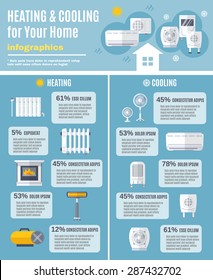The Future Of Home Heating - Exactly How Heatpump Technology Is Advancing
The Future Of Home Heating - Exactly How Heatpump Technology Is Advancing
Blog Article
Uploaded By-Marshall Ringgaard
Heatpump will certainly be an essential technology for decarbonising heating. In a circumstance consistent with governments' revealed power and environment dedications, their international capability doubles by 2030, while their share in home heating rises to one-quarter.
They work best in well-insulated homes and depend on electrical energy, which can be provided from a sustainable power grid. Technical advancements are making them a lot more efficient, smarter and less costly.
Gas Cells
Heat pumps use a compressor, refrigerant, coils and fans to relocate the air and warmth in homes and appliances. They can be powered by solar energy or electrical power from the grid. They have been obtaining popularity as a result of their affordable, peaceful procedure and the capacity to generate electricity throughout peak power demand.
Some business, like IdaTech and BG MicroGen, are dealing with fuel cells for home heating. These microgenerators can replace a gas central heating boiler and generate several of a home's electric needs with a link to the electricity grid for the remainder.
Yet there are factors to be unconvinced of using hydrogen for home heating, Rosenow says. click here now would certainly be expensive and inefficient contrasted to various other innovations, and it would certainly contribute to carbon emissions.
Smart and Connected Technologies
Smart home technology permits house owners to connect and regulate their devices remotely with the use of smartphone apps. For example, smart thermostats can learn your heating choices and immediately adapt to optimize energy consumption. Smart lighting systems can be regulated with voice commands and instantly shut off lights when you leave the area, lowering power waste. And clever plugs can keep an eye on and manage your electrical usage, allowing you to identify and limit energy-hungry home appliances.
The tech-savvy household shown in Carina's interview is a good illustration of just how owners reconfigure area heating practices in the light of brand-new wise home technologies. They rely upon the devices' automatic attributes to carry out everyday modifications and concern them as a hassle-free methods of performing their heating techniques. As such, they see no reason to adjust their practices additionally in order to make it possible for flexibility in their home power demand, and treatments aiming at doing so may deal with resistance from these homes.
Power
Because warming homes represent 13% of US emissions, a button to cleaner choices could make a big distinction. However the modern technology encounters difficulties: It's expensive and requires considerable home remodellings. And it's not always compatible with renewable resource resources, such as solar and wind.
Until recently, electric heatpump were also expensive to take on gas models in a lot of markets. However new developments in style and materials are making them more budget-friendly. And better cold climate efficiency is enabling them to function well even in subzero temperatures.
https://www.consumerreports.org/window-air-conditioners/installing-a-window-air-conditioner-in-an-apartment-faq/ in decarbonising heating might be the use of warm networks, which draw heat from a central source, such as a neighboring river or sea inlet, and disperse it to a network of homes or buildings. That would decrease carbon exhausts and enable homes to take advantage of renewable energy, such as environment-friendly electrical energy from a grid provided by renewables. This choice would be less expensive than switching to hydrogen, a fossil fuel that calls for new infrastructure and would only minimize carbon dioxide discharges by 5 percent if coupled with boosted home insulation.
Renewable Energy
As power rates go down, we're beginning to see the very same trend in home heating that has actually driven electric autos into the mainstream-- however at an also quicker rate. The strong climate situation for electrifying homes has actually been pressed further by brand-new research.
Link Website represent a substantial share of modern-day warmth intake, however have actually been provided limited plan attention globally contrasted to various other end-use markets-- and even less interest than electricity has. Partly, this mirrors a mix of consumer inertia, divided incentives and, in several countries, subsidies for fossil fuels.
New innovations can make the change less complicated. As an example, heat pumps can be made more power efficient by changing old R-22 cooling agents with brand-new ones that don't have the high GWPs of their predecessors. Some experts additionally picture area systems that attract heat from a close-by river or sea inlet, like a Norwegian arm. The warm water can after that be used for heating & cooling in a community.